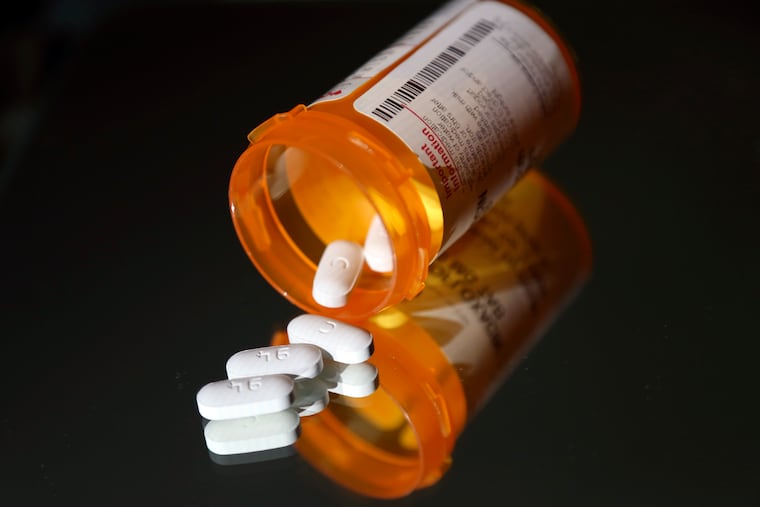A Camden pharmacy allegedly billed insurance for prescriptions it didn’t fill. It was a record-keeping issue, says lawyer
Farmacia San Antonio has agreed to pay $625,000 in a settlement agreement. The pharmacy's legal counsel denies it was a "fraud matter."

A Camden-based pharmacy, which allegedly billed insurance for prescriptions it didn’t actually fill, has reached a settlement agreement with federal prosecutors in New Jersey.
“Pharmacies play an important role in maintaining the safety and accuracy of prescribed medications, and allegedly billing for medications not actually dispensed undermines that role and defrauds our health-care programs,” Vikas Khanna, the acting U.S. Attorney in New Jersey, said in a statement.
Farmacia San Antonio allegedly billed Medicaid and Medicare for medication it didn’t have sufficient quantities of to disburse between 2019 and 2022, the settlement says. The business agreed to pay $625,000 to settle the allegations.
A lawyer for the pharmacy, Angelo Cifaldi of Wilentz, Goldman & Spitzer, said the discrepancy “was a recordkeeping matter and not a fraud matter.”
“My client resolved the matter to prevent what would have been very costly litigation against a community pharmacy with limited resources,” Cifaldi said.
“This did not involve billing for medication not supplied to patients, but dealt with insufficient backup to support the dispensing. Not one patient claimed they did not get their medication nor did they claim they were injured,” Cifaldi said.
Cifaldi said much of the case revolved around the pharmacy not having the exact product prescribed, or not having the precise code for the one it dispensed. Because of supply issues at the height of the pandemic and afterward, some pharmacists worked with distinct suppliers, some of which might have only a generic version, Cifaldi said, and issues arose when the record wasn’t updated to reflect this change.
“While we do understand the NDC billing regulations require this to be done, the patients were never harmed or at risk since the drugs they were given were allowed under New Jersey and federal laws,” he added.
» READ MORE: Independent pharmacists fight burnout and industry pressures as Rite Aid and CVS close stores
Pennsylvania’s top prosecutor also recently pressed charges against a different pharmacy in the Philadelphia area for billing issues.
People who ran the Broad Street Family Pharmacy, in South Philly, were charged in December with allegedly billing over $20 million in false medication claims between 2016 and 2021.
The business in large part billed for an antipsychotic drug, Latuda, as well as medications for HIV that have high reimbursement values — but actually filled few of these, the charge alleges. The pharmacy also allegedly paid patients to bring their prescriptions to Broad Street Family Pharmacy.
“The owner and operator of this pharmacy were essentially pretending to fill prescriptions for expensive medications, while defrauding the Medicaid and Medicare programs of millions of dollars with a sophisticated scheme involving nearly a dozen co-conspirators,” Attorney General Michelle Henry said in a statement last month.
The business, which has been closed for several years, could not immediately be reached for comment on Thursday. Lawyers for Peter Dello Buono and Christian Bengermino — who are among the nine charged in the case — declined to comment, and a lawyer for another defendant could not be reached immediately Thursday.
More broadly in the retail pharmacy industry, drugstores have struggled to cope with low reimbursements from insurance companies, which sometimes mean they lose money filling certain prescriptions.
In 2024 some 80 community pharmacies closed in Pennsylvania because of the rates and fees set by pharmacy benefit managers, an intermediary between pharmacies and insurance companies.
» READ MORE: What happens after a Philly neighborhood’s last chain pharmacy shuts its doors